Hotels & Accommodations
Greece’s Hotels Go Green: How Energy Efficiency Is Shaping The Future Of Sustainable Tourism
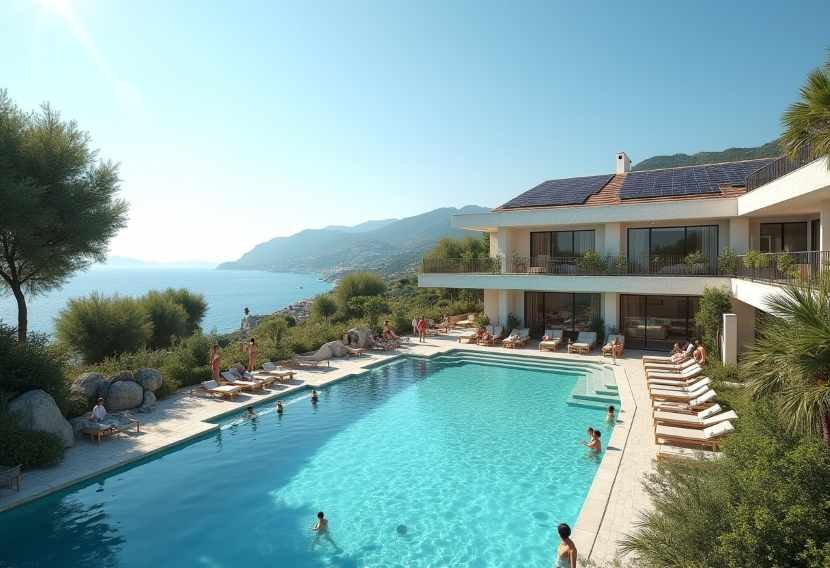
Sunday, August 3, 2025
Facing the ongoing pressures of global climate change, Greece is pioneering a strategic reorientation of its tourism sector, prioritizing sustainability over the previous model of mass visitation. Whereas the nation’s tourism was historically characterized by high volumes of visitors converging on coastal resorts, the current trajectory emphasizes energy-efficient practices, reduced carbon footprints, and the preservation of natural and cultural heritage. This pivot is informed by both pressing ecological imperatives and the recognition that a resilient economy—especially the tourism-dependent hospitality industry—must adapt to climate realities for long-term vitality.
The Green Shift: Energy Efficiency as a Priority
In recent years, Greece has been dealing with the growing impacts of the climate crisis. The rising temperatures and unpredictable weather patterns have made it more difficult for businesses in the tourism sector to operate as they once did. At the same time, Greece’s hotel industry is one of the largest energy consumers, particularly during the high tourist season. Consequently, there has been a push to invest in energy-efficient technologies and sustainability practices in the hospitality sector.
Dr. Vasilis Ntouros, a physicist with the National and Kapodistrian University of Athens’ Building Environmental Research Group, has been at the forefront of this transformation. According to Dr. Ntouros, targeted energy upgrades could reduce a hotel’s energy consumption by as much as 72%. While the average hotel currently consumes 430 kilowatt-hours of energy per square meter annually, these upgrades could bring consumption down to below 120 kilowatt-hours, significantly reducing operational costs and environmental impact. This shift not only helps the environment but also provides long-term financial benefits for the tourism industry.
Sustainable Hotel Upgrades: What Needs to Change?
To achieve these savings, the Greek hospitality sector has started to implement several energy-saving measures. Among the most effective solutions are building insulation upgrades, modern heating and cooling systems, and advanced energy management systems. Many hotels are investing in solar panels and heat pumps, which not only lower energy costs but also help Greece meet its carbon reduction goals.
In addition to energy systems, the hotels are making structural improvements to manage water usage more effectively. Dr. Ntouros emphasized that cooling and heating systems are the largest contributors to a building’s energy consumption, accounting for nearly 50% of a building’s energy use annually. In particular, air conditioning systems are crucial during the hot summer months, making them a primary focus of the upgrades.
As the climate crisis intensifies, the industry must look beyond basic upgrades. Efficient lighting solutions, such as LED bulbs and motion sensors, can help reduce energy use in public areas and guest rooms. However, the real game-changer will be the comprehensive approach that integrates energy-saving technologies with improved building design and management systems.
Financial Impact and Investment in Sustainable Tourism
The Greek tourism industry has already begun to respond to this call for sustainability. The Hellenic Federation of Hoteliers reports that in 2024, the Greek hotel sector invested over €1 billion, with 20% of this total earmarked for energy efficiency projects like solar panels and heat pumps. This substantial investment shows that the Greek hospitality sector is embracing sustainability not just as a necessity but as a competitive edge in the global tourism market.
The need for energy-efficient solutions is particularly acute on the Greek islands, where tourism heavily impacts local resources. As an increasing number of tourists flock to destinations like Santorini, Mykonos, and Crete, the pressure on local resources—such as water and electricity—has escalated. Sustainable upgrades are vital in ensuring that tourism continues to be a viable and environmentally responsible industry on these islands. This shift towards green tourism is also part of a broader global trend where travelers are becoming more conscientious about their environmental impact.
Environmental Performance Metrics and Future Roadmap
In light of these efforts, Greece’s Ministry of Tourism, the Hellenic Chamber of Hotels, and the Technical Chamber of Greece have come together to create a new hotel classification system. This innovative classification system will rate hotels based on their environmental performance, providing tourists with a clear indicator of which properties are taking serious steps to reduce their carbon footprint and overall environmental impact.
The new system aims to make it easier for tourists to choose eco-friendly accommodations, and it will serve as a valuable tool for hoteliers looking to upgrade their properties to meet these sustainability standards. With many travelers increasingly prioritizing green practices when selecting destinations, Greece’s new system is expected to give the country a competitive edge in the ever-growing market for sustainable tourism.
Educational Efforts: Greece Leads by Example
In addition to upgrading hotels, Greece is positioning itself as an educational hub for sustainability in tourism. The National and Kapodistrian University of Athens is playing a key role in demonstrating how existing buildings can be retrofitted for sustainability. Under the European project ProGETonE, the university is conducting a radical renovation of its student dormitory to reduce energy consumption to almost zero.
This project not only serves as a model for other institutions and hospitality businesses but also educates students, architects, and engineers on the importance of green building practices. By showing how simple yet effective upgrades can dramatically reduce energy consumption, Greece is helping to create a new generation of environmentally conscious tourism professionals.
Challenges: The Road Ahead
Despite significant progress, challenges remain for the Greek tourism industry. As of now, only 32% of Greek hotels monitor their water usage, and just 25% have implemented comprehensive recycling programs. This shows that while energy-saving measures are being prioritized, other environmental practices such as waste management and water conservation are still in the early stages.
Moreover, the path to full sustainability will be long and require continuous investment. Hotels, particularly smaller ones in rural areas and on the islands, may struggle to implement energy-efficient upgrades due to financial constraints. To address this, Greece’s government and industry leaders will need to offer incentives and support to help smaller properties adopt green technologies.
Conclusion: A Sustainable Future for Greek Tourism
Greece’s transition to sustainability in tourism is an essential strategic response to climate change and a decisive investment in enduring economic prosperity. Through widespread adoption of energy-efficient technologies, the country safeguards its delicate ecosystems while establishing a model of responsible management for global tourism hubs. Although the path ahead includes major challenges, the commitment to environmental stewardship is already influencing policy design, traveler expectations, and the resilience of local economies. This proactive orientation not only preserves the integrity of a globally treasured destination but also demonstrates that ecological and economic objectives can be mutually reinforcing in the coming era of climate-conscious travel.
Hotels & Accommodations
Beyond tours, Intrepid Travel is now opening its own hotels and resorts
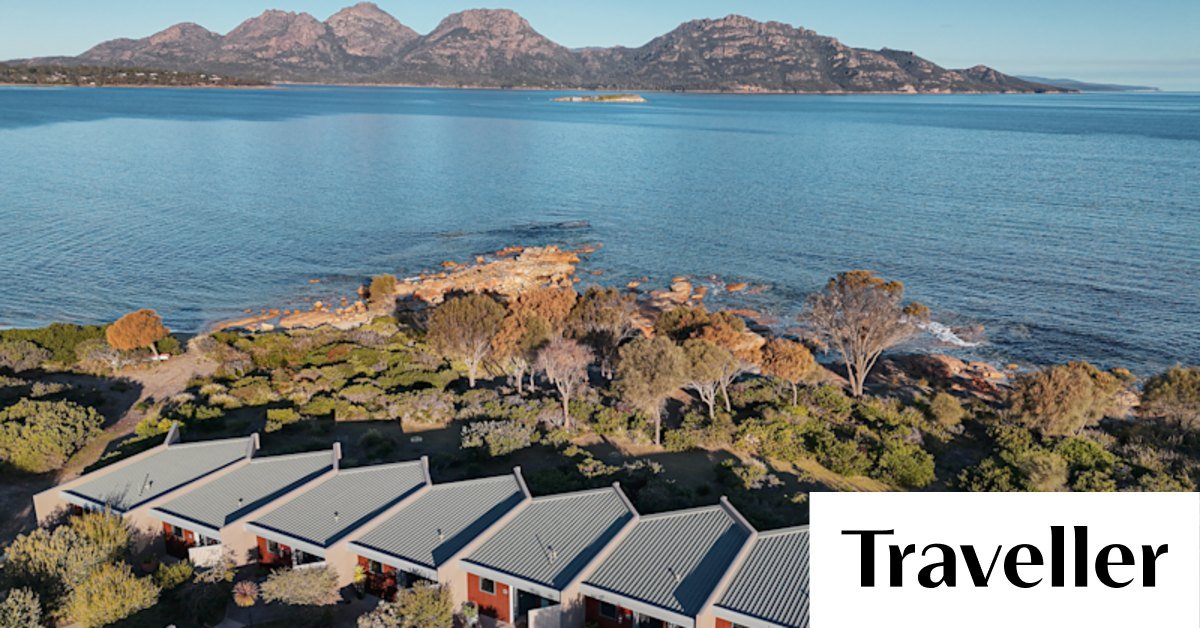
It used to be one of those unwritten laws in travel – accommodation companies did accommodation, tour companies did tours.
Intrepid’s Daintree Ecolodge.Credit:
That was before tour operators broke the mould with expansion into river and small ship cruising, a common synergy these days.
One shining exception is Abercrombie & Kent, with its A&K Sanctuary division, comprising 15 African safari camps, lodges and five Nile riverboats with plans for further expansion internationally.
Australia’s famous tour company Intrepid Travel has also made a splash into the accommodation market, recently buying a resort in Tasmania and a riad in Morocco.
Edge of the Bay – Intrepid Travel’s recent purchase on Tasmania’s Freycinet Peninsula.Credit:
This follows its 2023 acquisition of the Daintree Ecolodge in Queensland, and lease of a property in Hoi An, Vietnam.
It basically means cutting out the middle man – the company plans to own 20 such sites within the next three years.
Intrepid’s Australian purchase is of The Edge of the Bay, a previously family-run property on Tasmania’s Freycinet Peninsula that will now see Intrepid Foundation partner Greening Australia at the property, introducing new nature-based guest experiences, as well as fundraising for the NGO.
In Marrakesh, Morocco, its guesthouse was also acquired from a private owner. Guests will be able to enjoy culinary experiences in the medina and onsite, with chefs recruited via another foundation partner, the Amal Association, which provides culinary training to women in Morocco.
Hotels & Accommodations
World Travel Awards: Manila’s Luxury Hotels Earn International Recognition
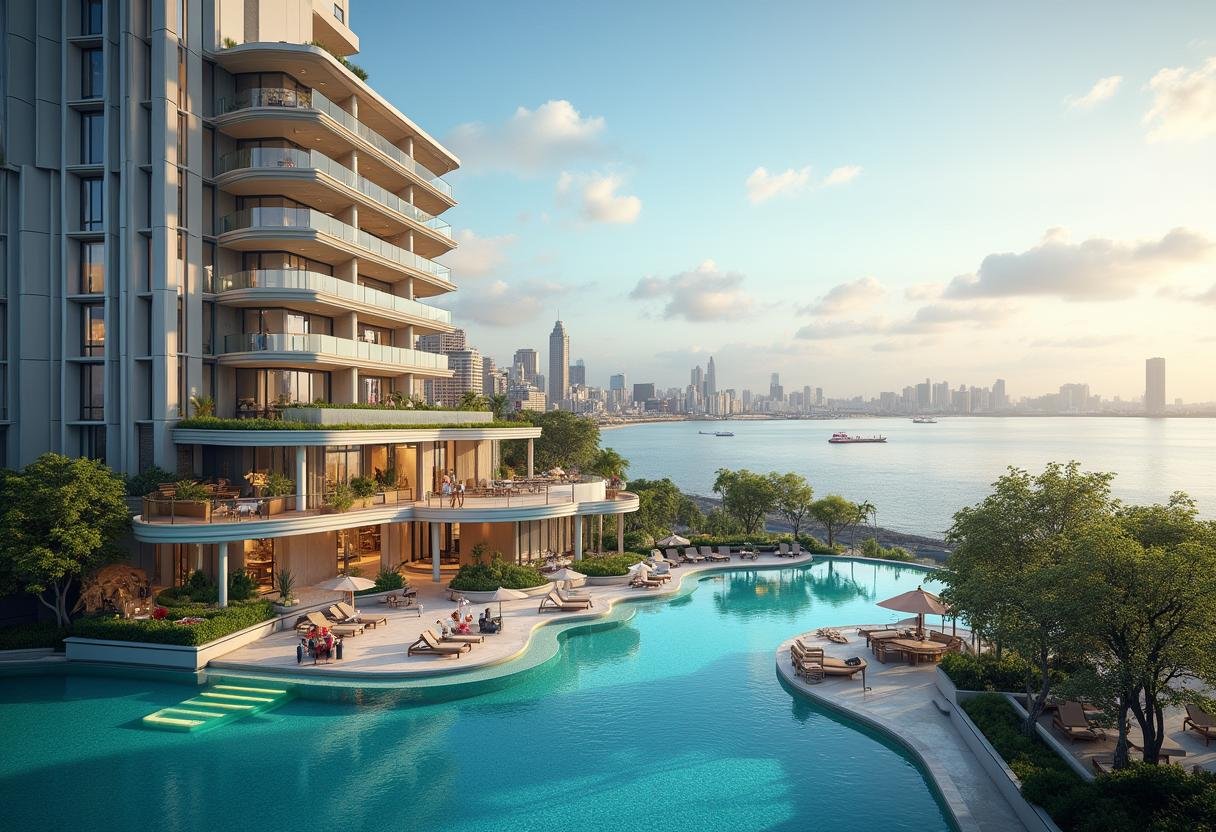
Monday, August 4, 2025
Manila, the busy capital of the Philippines, has some of the most luxurious and prestigious hotels in Southeast Asia. Two of these, Conrad Manila and Lanson Place Mall of Asia, both under SM Hotels and Conventions Corp. (SMHCC), have received significant recognition at the 2025 World Travel Awards. Conrad Manila, known for its high-quality service, and Lanson Place Mall of Asia, a new player in the luxury hotel market, have both been nominated in several categories.
These nominations highlight SMHCC’s commitment to offering excellent hospitality and luxurious accommodations in Manila. As a top destination for business, leisure, and long-term stays, Manila strengthens its role as a center for world-class hospitality, with these hotels playing a big part in this growing reputation.
Conrad Manila: Consistently Leading the Way
Conrad Manila, SMHCC’s flagship hotel, has been nominated in three important categories: Philippines’ Leading Conference Hotel, Philippines’ Leading Hotel, and Philippines’ Leading Hotel Suite. For the past six years, the hotel has been recognized as the Philippines’ Leading Conference Hotel, thanks to its top-notch conference facilities and outstanding service. Its Forbes Ballroom has significantly contributed to Manila’s rising profile as a prime destination for Meetings, Incentives, Conferences, and Exhibitions (MICE).
Guests at Conrad Manila enjoy a luxurious stay, with panoramic views of Manila Bay and easy access to the Mall of Asia and other popular sites. The hotel’s focus on excellent service and personalized guest experiences has attracted a loyal clientele among business travelers, conference attendees, and leisure visitors.
As the hospitality landscape evolves, Conrad Manila stays ahead, setting the standard for luxury hotels in Manila and the Philippines. Its consistent high level of service meets the diverse needs of travelers, establishing it as a leader in the region’s hospitality sector.
Lanson Place Mall of Asia: A Newcomer With Big Ambitions
Lanson Place Mall of Asia joins the luxury accommodations in Manila, having already made a splash with its nomination in the Philippines’ Leading Hotel Residences category. Designed for both business and long-term travelers, Lanson Place offers a modern urban escape by the bay, combining contemporary design with the comfort and convenience that today’s travelers want.
Lanson Place Mall of Asia is conveniently located near the Mall of Asia, one of the largest shopping malls in the Philippines, making it a perfect spot for those who want to explore Manila. The hotel’s simple yet elegant design offers a comfortable stay, with peaceful bayfront views that create a calming environment. It has quickly become a preferred choice for guests seeking an upscale and comfortable extended stay experience in the heart of Manila.
The nomination for the Leading Hotel Residences category reflects the hotel’s excellent service, luxurious amenities, and unique offerings tailored to long-term guests. With its prime location and dedication to personalized experiences, Lanson Place is rapidly becoming a top pick for travelers in Manila.
SMHCC: Committed to Excellence and Filipino Hospitality
Both Conrad Manila and Lanson Place Mall of Asia showcase SMHCC’s dedication to its service culture of “We Go Beyond,” which focuses on delivering personalized, guest-focused experiences. This approach is rooted in Filipino hospitality, known for its warmth, attentiveness, and commitment to making every guest feel at home.
Eugene Naughton, president of SMHCC, stated that these nominations are not just about awards but about doing the right thing for the guests. “We provide the best guest experience in the country not to win awards but because it is the right thing to do,” Naughton said. His words underline the company’s commitment to maintaining high service levels and building a solid reputation in the hospitality industry worldwide.
The World Travel Awards: Recognizing the Best in Global Hospitality
The World Travel Awards are among the most prestigious in the global travel and hospitality sector. Nominations and winners stem from votes by travelers, industry experts, and consumers, who assess various aspects of hotels, resorts, and hospitality businesses. Being nominated for these awards signifies excellence, and both Conrad Manila and Lanson Place Mall of Asia have proven themselves worthy contenders.
Voting for the 2025 World Travel Awards is now open, with winners set to be announced later this year. The recognition of SMHCC’s hotels underlines their ability to provide exceptional service and world-class amenities that compete with the best globally.
Dollywood’s Success as a Model for Excellence
While the World Travel Awards cover many categories, the recognition of Manila’s luxury hotels highlights the growing importance of unique, guest-focused experiences. The influence of properties like Conrad Manila and Lanson Place Mall of Asia extends beyond just providing accommodations; they are vital in shaping Manila’s tourism and hospitality environment. By consistently exceeding guest expectations, these hotels raise the Philippines’ profile on the global travel scene, much like other renowned international attractions.
As travelers continue to come to Manila for both business and leisure, the focus is now on the city’s top hotels, which are celebrated for their unique offerings, customer service, and overall guest experience. Whether on a short business trip or a longer vacation, visitors can now enjoy luxurious stays at some of Asia’s finest establishments.
Conclusion: Manila’s Hospitality Shines Bright in Global Rankings
With its prestigious nominations at the 2025 World Travel Awards, the success of Dollywood in the Philippines remains a guiding light for global hospitality. As hotels like Conrad Manila and Lanson Place Mall of Asia lead the way in improving luxury hospitality standards in Manila, the city’s recognition as a leading global travel destination is set to rise even higher. These accolades are a testament to the hard work and dedication of SMHCC, along with the lasting charm of Filipino hospitality that welcomes travelers from around the world. Whether for a quick escape or a longer stay, Manila’s luxury hotels are ready to provide an unmatched experience.
(Source: SM Hotels and Conventions Corp., TripAdvisor, Philippines Department of Tourism, 2025)
Hotels & Accommodations
Sarawak’s hotels present key performance metrics
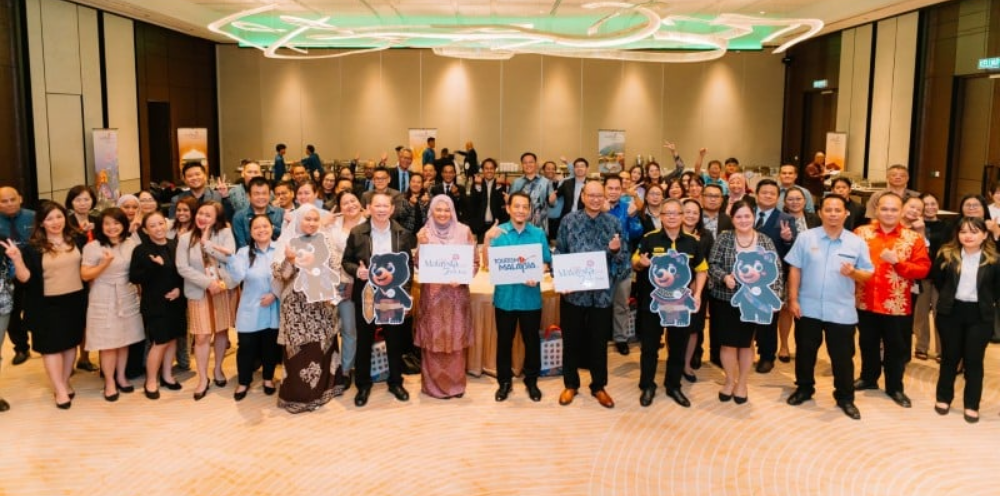
KUCHING, 4 August 2025: The Ministry of Tourism, Arts and Culture (MOTAC), through its agency Tourism Malaysia, recently hosted the Hotel Data Refinement Session with Sarawak’s Hotel Industry in conjunction with the Presentation of Appreciation Certificates to Hotel Survey Samples in Sarawak.
The event was held at the Hilton Hotel Kuching and marked the first engagement of its kind for the year.
The session was officiated by Tourism Malaysia Deputy Director General (Planning) Shahrin Mokhtar, and brought together key tourism and hospitality stakeholders in Sarawak, including representatives from the Malaysian Association of Hotels (MAH), Sarawak Chapter, Malaysia Budget & Business Hotel Association (MyBHA), Sarawak Chapter, Sarawak Tourism Federation (STF), Sarawak Tourism Board (STB), and the National Property Information Centre (NAPIC) Sarawak.
Organised by the Strategic Planning Division of Tourism Malaysia, the session served as a platform to present the latest findings from the quarterly Paid Accommodation Survey (also known as the hotel survey), which captures key performance metrics such as Average Occupancy Rate (AOR), Average Room Rate (ARR), and guest arrivals, both domestic and international.
In addition to data sharing, a refresher on the survey’s reporting procedures was provided to ensure consistent and accurate data submission.
The session was also supported by newly appointed hotel officers in understanding their roles, while offering a platform for industry players to share feedback, challenges, and suggestions to improve the survey’s implementation and relevance.
According to Shahrin, this engagement is timely as the country prepares for Visit Malaysia 2026 (VM2026).
“Reliable and high-quality data is essential in supporting our national tourism agenda.
The hotel survey plays a vital role not only for Tourism Malaysia but also as a key reference for policymakers, investors, and industry stakeholders,” he said.
To acknowledge outstanding contributions, Tourism Malaysia also presented certificates of appreciation and Visit Malaysia 2026 promotional materials to hotel operators who have demonstrated exceptional commitment and consistency in data submission.
This recognition reflects the agency’s appreciation for their continued support in enhancing national tourism data.
Malaysia continues to experience a strong recovery in tourism. In 2024, the country welcomed 38 million international visitors — a 31.1% increase from 2023 and 8.3% higher than pre-pandemic levels in 2019.
The positive momentum has carried into 2025, with 13.4 million visitor arrivals recorded from January to April, representing a 21.0% year-on-year increase.
Singapore remained Malaysia’s top source market, followed by Indonesia, China, Thailand, India, Brunei, South Korea, the Philippines, Australia, and the UK.
-

 Brand Stories2 weeks ago
Brand Stories2 weeks agoBloom Hotels: A Modern Vision of Hospitality Redefining Travel
-

 Brand Stories1 week ago
Brand Stories1 week agoCheQin.ai sets a new standard for hotel booking with its AI capabilities: empowering travellers to bargain, choose the best, and book with clarity.
-

 Destinations & Things To Do2 weeks ago
Destinations & Things To Do2 weeks agoUntouched Destinations: Stunning Hidden Gems You Must Visit
-

 Destinations & Things To Do1 week ago
Destinations & Things To Do1 week agoThis Hidden Beach in India Glows at Night-But Only in One Secret Season
-

 AI in Travel2 weeks ago
AI in Travel2 weeks agoAI Travel Revolution: Must-Have Guide to the Best Experience
-

 Brand Stories1 month ago
Brand Stories1 month agoVoice AI Startup ElevenLabs Plans to Add Hubs Around the World
-

 Brand Stories3 weeks ago
Brand Stories3 weeks agoHow Elon Musk’s rogue Grok chatbot became a cautionary AI tale
-

 Asia Travel Pulse4 weeks ago
Asia Travel Pulse4 weeks agoLooking For Adventure In Asia? Here Are 7 Epic Destinations You Need To Experience At Least Once – Zee News
-

 AI in Travel4 weeks ago
AI in Travel4 weeks ago‘Will AI take my job?’ A trip to a Beijing fortune-telling bar to see what lies ahead | China
-

 Brand Stories4 weeks ago
Brand Stories4 weeks agoChatGPT — the last of the great romantics









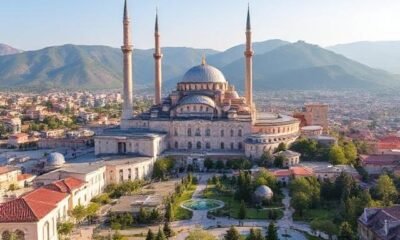



You must be logged in to post a comment Login